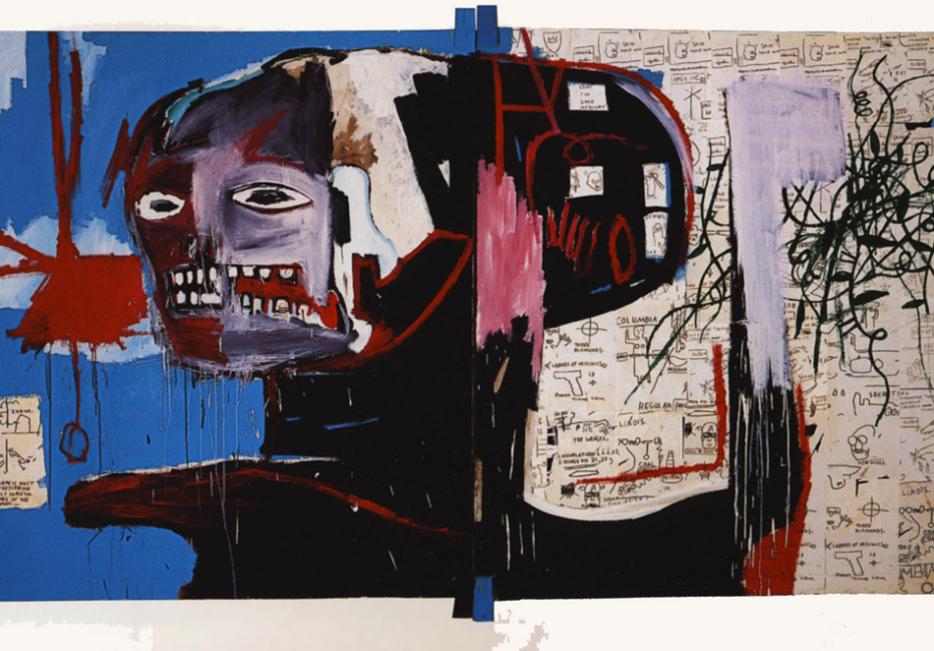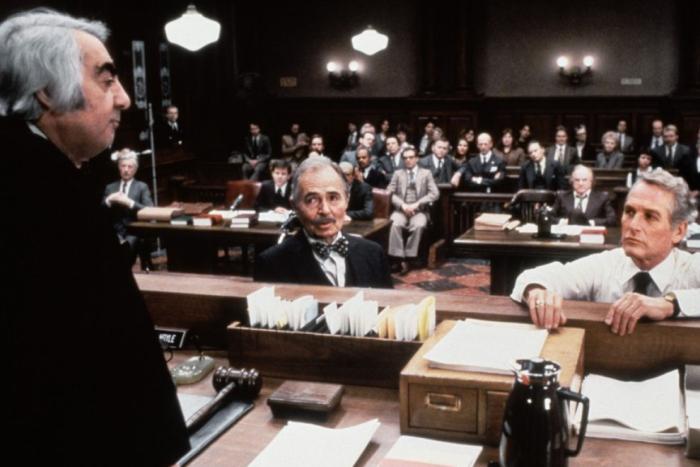“Why?” is the sort of question that makes any professional drinker upset because it is a very difficult question to answer if you’re cross-eyed with vodka. But it’s a good thing to be asked—it means that there are people around you (still) who bother to ask. Although I found their persistence annoying at the time, I got it—it, that maddening instinct of wanting to understand something that looks like such premeditated self-assault. An on-going liquid suicide if you will.
During my relapse, I remained a compulsive reader, despite being very busy (with taking care of an infant and with taking care of my drinking). The most important book I read then was In the Realm of Hungry Ghosts (2009) by Dr. Gabor Maté, an intimate first-person study that draws on a diverse array of research and case studies—from street-dwelling drug users to highly-functioning professionals—to question many of our most firmly held beliefs about addiction. I loved how Dr. Maté explained some of the mechanisms of drug dependence more eloquently than I ever could (I was slurring a lot back then too). I used to shove the book at all the people who asked why, hoping they would read it. Hungry Ghosts was my sober mouth.
Eventually, I gave up trying to explain why—via this book or in any other way—because I was too fucked up. One of the ongoing side effects of my drinking, my relapse, was the feeling of guilt and shame. And guilt and shame are fuel to addiction. The Little Prince by Antoine de Saint-Exupery perfectly illustrates the logic of this conundrum.
‘Why are you drinking?’ the little prince asked.
‘In order to forget,' replied the drunkard.
'To forget what?' enquired the little prince, who was already feeling sorry for him.
'To forget that I am ashamed,' the drunkard confessed, hanging his head.
'Ashamed of what?' asked the little prince who wanted to help him.
'Ashamed of drinking!' concluded the drunkard, withdrawing into total silence.
Maté’s book didn’t alleviate the feelings of guilt, but in a way it made me dislike myself a little less. And it made me understand some of what was going on. Not that understanding addiction makes anyone sober.
Now in sobriety, I met with Maté recently to revisit the mystery of addiction. The author of four books, all national bestsellers, including Scattered Minds: A New Look at the Origins and Healing of Attention Disorder and When the Body Says No, Maté spent 12 years working with hardcore addicts in Vancouver’s infamous Downtown Eastside neighbourhood. Maté was in Toronto to give various talks on mental health as well as lead a yoga workshop. I don’t give a flying eff about yoga but I was dying to ask him about addiction (since he understood).
Drunk Mom, my own memoir about addiction, was about to be published and I was a little bit (a whole lot) of a nervous wreck about it. This is perhaps why, upon seeing Maté—with his beautifully lined face, his tired eyes, and this almost palatable demeanor that made him seem so contentedly grounded (albeit a bit resigned)—I immediately felt like crying. Good-bye interview, hello therapy!
GUILT
Maté: Where in your life have you not felt guilty?
Bydlowska: When have I not felt guilty?
Maté: Yes.
Bydlowska: I don’t know. Not often.
Maté: Not often what?
Bydlowska: I frequently feel guilty about something.
Maté: That’s my point, your guilt has nothing to do with your relapse. You just have this guilt, always, and that guilt is like a bird that will fly anywhere trying to find a spot to make a nest. So if you relapse, that’s a huge nest for your guilt. Your guilt says, “Oh, great, I can fly there, I can really live there and get big.” But your guilt is always there anyway and your guilt has nothing to do with what you did.
Bydlowska: I have a chapter in my book that’s called Archeology of Addiction where I try to go back to the five-thousand-and-ten reasons as to why I think I relapsed. It’s kind of tongue-in-cheek because I don’t believe the reasons are arbitrary but you talk about early childhood trauma. I don’t know if I believe that, I know it’s terrible—
Maté: When you say “terrible,” you are judging yourself, so notice how quickly you do that. It is curious not terrible. If you say you don’t judge other addicts, are you judging yourself as an addict? Are you doing it deliberately?
Bydlowska: No—
Maté: Do you wake up in the morning and say “I’m going to judge people today?”
Bydlowska: No.
Maté: So it’s an automatic process, yes?
Bydlowska: Yes.
Maté: So you are not doing it, it is doing itself. You just have to notice it and then you can decide for yourself, do I want to believe it or do I want to do what I actually believe, what are my actual values? The fact is your judgment is completely automatic, your guilt is totally automatic.
SPIRITUALITY
Bydlowska: I became sober in the process of being addicted, which—
Maté: You abstained.
Bydlowska: No, I got sober.
Maté: You abstained.
Bydlowska: I abstained but I had a moment—I suddenly felt I could no longer lie. There was nothing special about it, it was just this moment as I was walking down the street from my house, after another night of drinking and then I felt this weightlessness and then I was sober. And when I wrote this in the book the copy editor circled it and said something like, “But what happened?” But the thing is nothing happened.
Maté: No, the ordinary mind can’t understand that, what you had was a direct experience of yourself. It is completely outside of the personality, it’s an experience with a deep reality.
Bydlowska: But it is random, right?
Maté: Well, it’s what people seek when they mediate, when they have other spiritual aspirations. It’s called grace. And you didn’t do anything to create it, something just opened up. But it is real; it is a far more real you than being an addict is you. This is why I say that nobody is an addict, that would make no sense at all. People spend years in monasteries to have that kind of experience that you had, meditating from four in the morning till midnight. I’m sure it just showed up and you couldn’t make it show up when you wanted to, but it is there. It is there and you can recover it.
Bydlowska: It just showed up?
Maté: You don’t like that part.
Bydlowska: No, I don’t like that part.
Maté: Neither do I.
Bydlowska: It seems very unfair, I mean, I have friends who have died from addiction. Why can’t they—
Maté: Well, instead of saying that it’s unfair, how about being grateful for it?
Bydlowska: I am, of course, I am.
Maté: There’s nothing unfair about it.
Bydlowska: But I care about other people.
Maté: The guilt is not about other people. The guilt is your guilt that you always feel.
Bydlowska: Yes.
Maté: And when you have guilt, then even a beautiful experience like that is going to become nourishment for the guilt. I’ve tried to have that experience but I haven’t succeeded.
Bydlowska: Oh, it’s just around the corner from my house, you should come.
Maté: It is also around the corner from all of us.
DRUGS
Bydlowska: I don’t think I would do drugs again.
Maté: What is a drug?
Bydlowska: Something that alters your mental and physical state, it makes you feel different.
Maté: Is that the definition of a drug, something that alters your state? How about going to a movie, doe that change how you feel?
Bydlowska: Yes.
Maté: Okay, you are supposed to go to movies. So what is a drug?
Bydlowska: I don’t know. I just come from a traditional sense of 12-step program view of abstinence. Not using outside things to change how I feel.
Maté: Yes, from that perspective any substance you put into yourself that will alter your consciousness is a bad thing.
Bydlowska: Yes.
Maté: This is because people don’t know what they’re talking about. There is a vast human tradition of spiritual seeking with the aid of plants and natural substances. This is not to lower your consciousness but to elevate your consciousness—this might happen when someone engages in a ceremony with native mushrooms. I’m talking about the traditional, ceremonial taking of them; I’m not talking about going on “trips.” For human beings who have done it for thousands of years, this was about achieving a peak of spiritual seeking. It’s not the same as addiction and obliteration. It is about having more connection with nature, more connection with creation, more connection with themselves, more identity—this is the opposite of drug use. So to not understand that distinction [in abstinence programs], it’s a misunderstanding.
LABELS
Bydlowska: You said you don’t agree with the adage that once an addict, always an addict. Is it possible to not be an addict one day, like, is it possible for someone who is an alcoholic by their own definition [of a 12-step program] to have a drink one day?
Maté: Theoretically that is possible but I’d be very careful about it. But why define somebody even if they stand up and say, “I’m so and so and I’m an alcoholic?” That’s just a behaviour they indulged in because they were in too much pain. So it would be a whole lot better for somebody to stand up and say, “My name is so and so and I have so much pain in my life and I didn’t know how to deal with it. So I’ve been using alcohol to escape from the pain and I have been doing it for a long time.” That would be a more accurate.
Bydlowska: That’s a really long way of introducing yourself.
Maté: Well, is that all you are, an addict?
Bydlowska: I’ve been saying it for seven years.
Maté: Well, you say it long enough and you will believe it.
Bydlowska: I totally do.
Maté: Yes, so I see the value in it but I also see the limit in it.
RECOVERY
Bydlowska: What does it mean to recover?
Maté: What does it mean to recover to you?
Bydlowska: I don’t know. Maybe that I don’t rely on external things to calm the internal storm.
Maté: Yes, that’s totally possible. It also means being an adult. Remember how infants don’t have the capacity to self-regulate? As an adult you can self-regulate internally. That is what it means to be an adult—being able to self-regulate internally. A lot of people don’t know how to do that; there are only a few adults in our society. So the question you should be asking is not if it’s possible to recover but is it possible to be an adult? What do you do for your child, if your child is going through a storm? If he is experiencing internal trauma what can you do for them? Given them candy?
Bydlowska: No.
Maté: What would you do?
Bydlowska: Talk to him.
Maté: Talk to him, listen to him, be with him and give him presence. The issue is not are we distraught, the issue is can we give ourselves that kind of presence and attention so that we can then be with the storm and not to have to run away with it? Of course that is possible—that is how you recover. The word “recover” means to find again, to recover something. What are we finding?
Bydlowska: Self.
Maté: Yes. And if we find self it means that self is never gone, otherwise you couldn’t find it.
CONFESSION
Bydlowska: Do you have an opinion on writing memoirs?
Maté: What kind of an opinion?
Bydlowska: Do you think it’s necessary to write about intimate, painful things?
Maté: Why did you write the book?
Bydlowska: Because I’m a writer.
Maté: But you could’ve written about the lilies in the field. Or cooking.
Bydlowska: It doesn’t attract me. I write about darkness. That attracts me. That is me.
Maté: So it’s a self-expression.
Bydlowska: Yes. But is it a good thing to write about yourself?
Maté: Well, if it’s well written it is a good thing and if it was badly written then it’s a bad thing.
Bydlowska: That’s it?
Maté: Yes.






